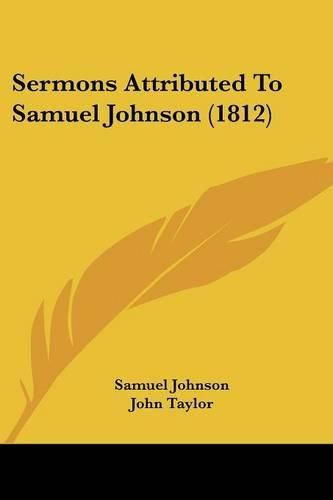Readings Newsletter
Become a Readings Member to make your shopping experience even easier.
Sign in or sign up for free!
You’re not far away from qualifying for FREE standard shipping within Australia
You’ve qualified for FREE standard shipping within Australia
The cart is loading…






Purchase of this book includes free trial access to www.million-books.com where you can read more than a million books for free. This is an OCR edition with typos. Excerpt from book: SERMON IIL Proverbs, Chap, xxviii. verse 14. Happy is the man that feareth alway: but he that har- deneth his heart shall fall into misthief. J. He great purpose of revealed religion is to afford man a clear representation of his dependance on the Supreme Being, by teaching him to consider God as his Creator and Governor, his Father and his J udge. Those, to whom Providence has granted the knowledge of the holy scriptures, have no need to perplex them specyjatioas, to deducetheir duty from remote principles, or to enforce it by doubtful motives The Bible tells us, in plain and authoritative terms, that.there is.a-atayto life, and a way to deathjX that there are acts which God will reward, and acts that he will punish. That with soberness, righteousness, and godliness, God will be pleased; and that with intemperance, iniquity,and impiety, God will be offended; and that, of those who are careful to please him, the reward will be such as eye hath not seen, nor ear heard; and of those who, having offended him, die without repentance, the punishment will be inconceivably severe, and dreadful. In consequence of this general doctrine, the whole system of moral and religious duty is expressed, in the language of scripture, by the fear of God. A good man is characterised, as a man that feareth God; and the fear of the Lord is said to be the beginning of wisdom; and the text affirms, that happy is the man that feaceth. always. On the distinction of this fear, into servile and filial, or fear of punishment, or fear of offence, on which much has been superstructed by the casuistical theology of the Romish church, it is not necessary to dwell. It is sufficient to observe, that the religion which makes fear the great principle of action, implicitly condemns all self- | confidence…
$9.00 standard shipping within Australia
FREE standard shipping within Australia for orders over $100.00
Express & International shipping calculated at checkout
Purchase of this book includes free trial access to www.million-books.com where you can read more than a million books for free. This is an OCR edition with typos. Excerpt from book: SERMON IIL Proverbs, Chap, xxviii. verse 14. Happy is the man that feareth alway: but he that har- deneth his heart shall fall into misthief. J. He great purpose of revealed religion is to afford man a clear representation of his dependance on the Supreme Being, by teaching him to consider God as his Creator and Governor, his Father and his J udge. Those, to whom Providence has granted the knowledge of the holy scriptures, have no need to perplex them specyjatioas, to deducetheir duty from remote principles, or to enforce it by doubtful motives The Bible tells us, in plain and authoritative terms, that.there is.a-atayto life, and a way to deathjX that there are acts which God will reward, and acts that he will punish. That with soberness, righteousness, and godliness, God will be pleased; and that with intemperance, iniquity,and impiety, God will be offended; and that, of those who are careful to please him, the reward will be such as eye hath not seen, nor ear heard; and of those who, having offended him, die without repentance, the punishment will be inconceivably severe, and dreadful. In consequence of this general doctrine, the whole system of moral and religious duty is expressed, in the language of scripture, by the fear of God. A good man is characterised, as a man that feareth God; and the fear of the Lord is said to be the beginning of wisdom; and the text affirms, that happy is the man that feaceth. always. On the distinction of this fear, into servile and filial, or fear of punishment, or fear of offence, on which much has been superstructed by the casuistical theology of the Romish church, it is not necessary to dwell. It is sufficient to observe, that the religion which makes fear the great principle of action, implicitly condemns all self- | confidence…